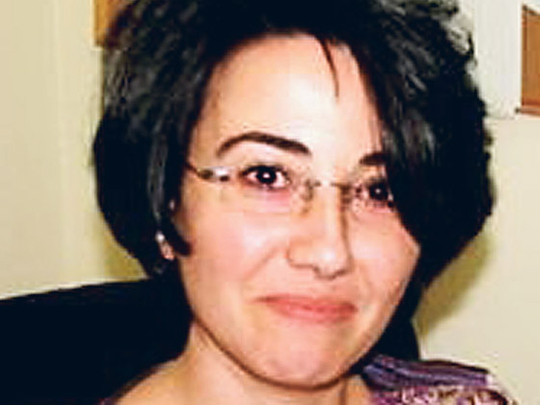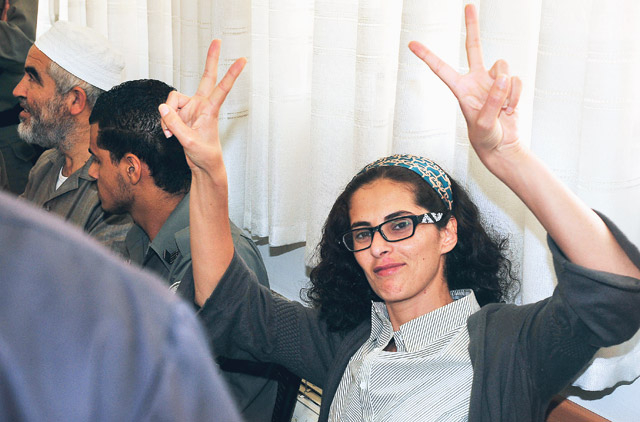
Dubai: It was about 2pm on Tuesday, June 1, at Ela prison in the Israeli city of Beer Sheba when detainees of the Freedom Flotilla of aid to Gaza first made contact with the outside world.
It had been more than 30 hours since Israel attacked the aid flotilla, killing nine Turkish activists and injuring many others. For that period, more than 600 activists and journalists were oblivious to global outcry the incident had created.
Diplomats streamed into the prison to meet their citizens, providing them with the first glimmer of hope for an early release, assuring them that the political fallout from the killings meant that Israel was under intense pressure to release the detainees.
At that moment, however, four other detainees sat in the Shikma prison, 70 kilometres away in the city of Ashkelon, isolated from the 600 or so international detainees.
They were the Palestinians with Israeli citizenship who had participated in the flotilla. They were brought to the prison in handcuffs and shackles after spending eight hours in a caged car, having been accused of attacking the Israeli army and aiding terrorist organisations.
As diplomats from over 30 countries rushed to ensure that their citizens were accounted for, few knew about the fate of the Palestinians with Israeli citizenship.
"When I heard one of the activists ask for diplomatic representation, I laughed to myself wondering if any diplomat would come to get me out," said Lubna Masarwa, a Palestinian official from the Free Gaza Movement, who holds an Israeli citizenship.
Lubna and the other isolated prisoners were also subjected to the kind of psychological pressure that the international detainees were spared from. "Guards kept approaching me to ask if I had considered suicide, saying the prison was known for suicides. There was also a lot of shouting and screaming nearby," she said, adding that she had been strip searched thrice while in her two metre by one metre "cage-like" cell.
Citizens' plight
The objective of the Palestinians with Israeli citizenship participating in the flotilla was to show solidarity with their compatriots living under the Egyptian-Israeli siege on Gaza, and also to shed light on their plight as citizens of Israel who are often referred to as the fifth column and the "demographic time bomb".
Being Israeli citizens, they are also seen with suspicion by the wider Arab world, from which they were shut out for the almost decades in which they lived under Israeli military rule following the establishment of Israel in 1948. "The world hasn't just forgotten about us. The world, including the Arab world, has wiped us off the map," said Haneen Zoubi, member of Israel's parliament, the Knesset, who also took part in the flotilla.
Haneen's parliamentary immunity did not bar her from being questioned, but it ensured that she was not jailed like the other Palestinians with Israeli citizenship. She now faces a different kind of battle in the Knesset.
On her first day back to the Knesset on Wednesday June 2, Haneen faced a verbal lynching by members of right wing parties, which included accusations of treachery and terrorism as well as personal insults. She remained contained even as one female member of the Knesset attempted to physically assault her.
Since then, the right wing Israeli interior minister Eli Yishai has consulted the Attorney General on whether a legal argument can be made to withdraw Haneen's Israeli citizenship on the basis of treason.
Deliberations have begun in lifting her parliamentary immunity as well as stripping her of privileges including her diplomatic passport and the Knesset's payment for the cost of legal action she may face.
Haneen believes this is part of a systematic effort by the Zionist establishment in Israel to target the political activity of the Palestinian citizens. "This shows the political bankruptcy of Israel and its need for vengeance… We do struggle, but we do it within the framework of the law, and that is what bothers them the most, which is why they are trying to frame us as having committed crimes," she said.
Intense pressure
This time, though, Palestinians with Israeli citizenship had not been forgotten. To their surprise, said Lubna, they were released to house arrest earlier than expected, on June 2, following intense pressure from Turkey. The organisers of the flotilla, she said, refused to leave Israel until all prisoners were released.
Shaikh Raed Salah, leader of the Islamic Movement in Israel who was also on the flotilla, said that Israel had set a precedent by negotiating with a foreign government for the release of its own citizens.
"Israel has in the past always insisted that Palestinians with Israeli citizenship taken as political prisoners were an internal Israeli matter and were kept out of prisoner exchanges. In this case, the pressure was so severe that they had to give in.
"This has not happened since 1985, when the Jibril deal included the release of Palestinian citizens of Israel," he said, referring to a deal between Israel and the Popular Front for the Liberation of Palestine in which Israel released over 1,000 prisoners in exchange for three Israeli prisoners.
According to Lubna, Israel could not have legally justified releasing hundreds of detainees and keeping the four.
Having received a number of death threats, Lubna says she does not feel safe anymore. She knows that the Israeli internal security agency, the Shabak, follows her every move, and does not expect to be protected by anyone, let alone her own government. "I don't have a state," she said.












